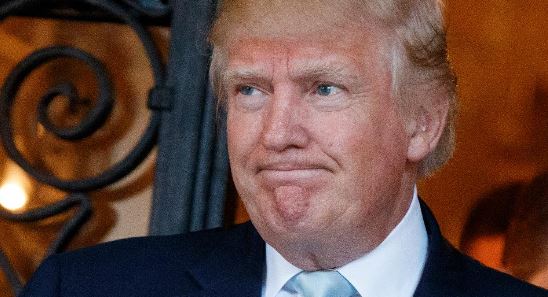
If you are an English teacher you are bound someday to have a cocktail party conversation that goes something like this:
Other guest: what do you do for a living?
Teacher: I’m an English teacher.
Other guest: Ohh, I guess I better watch what I say!
The perception that we might be attentive to other people’s grammar is actually only partly wrong. Generally it is very hard to know too much about English. It is a little like living without any filter at all. It can be difficult to resist the temptation to correct menus, signs and other written material. For the most part though, you have to filter out the things that people say because as a friend says, that way madness lies…
Nonetheless there are many reasons to study grammar, from the ways it can improve your writing to the insights it can offer into another’s thinking process. Case in point, the speech patterns of our new President, which are nothing if not bizarre.
It does not take an advanced grammarian to notice that the President cannot seem to pronounce the colloquial expression “big league,” morphing it into something that sounds “bigly.” Beyond this phrase though, the President peppers his speech with intensifiers, a grammatical construction designed to make an adjective (a word that describes a noun) more intense. In other words, the house is not only red, it is very, very red.
Semantically speaking an intensifier is a non-entity: it adds no meaning to a sentence beyond prompting a specific emotional response, dissolving into the background even as it is used. These are the words and phrases best left out of good writing, which should be as Orwell once said “…like a window pane.” The analogy here is apt and clear. Good prose, Orwell thought, stands out of its own way pointing to reality without compelling a particular response.
Of course the operative word here is reality. When a writer or speaker has, shall we say a flexible approach to said reality, perhaps intensifiers are mandatory. In this context a certain President’s verbal tic in resorting to intensifiers is disturbing. Why does he pepper his speeches with these semantical blips? He has told us that he is, “like a smart person,” and he has been successful in a variety of contexts in which we might suppose being clever with language is an asset. Yet still his propensity for liberally sprinkling intensifiers in his speech is noticeable, if not annoying.
Use of intensifiers, especially repeated in the same sentence would suggest to me a lack of vocabulary, or depth of thinking. If a word with the correct set of connotations is chosen, the right color if you will, no repetition would be necessary.
So why does he do it? In many contexts this type of language (great, really, really important, very, very dangerous) would only undercut his credibility. It is language that is inherently skewed to be persuasive, in a kind of petulant child dynamic. “Look at me, look at me,” shrieking in a whiny voice.
Perhaps it is a compulsion that arises from a narcissistic impulse to parade his conclusions along with his musings. Perhaps he simply can’t resist the self-referential feedback loop that is an intensifier, as it inevitably leads back to the thinker himself. Or perhaps he simply needs to follow the advice of Mark Twain who once advised, “Substitute 'damn' every time you're inclined to write 'very;' your editor will delete it and the writing will be just as it should be.”
So, if you happen to meet me at a party, please ignore my red pen: I am trying very, very hard not to correct you.